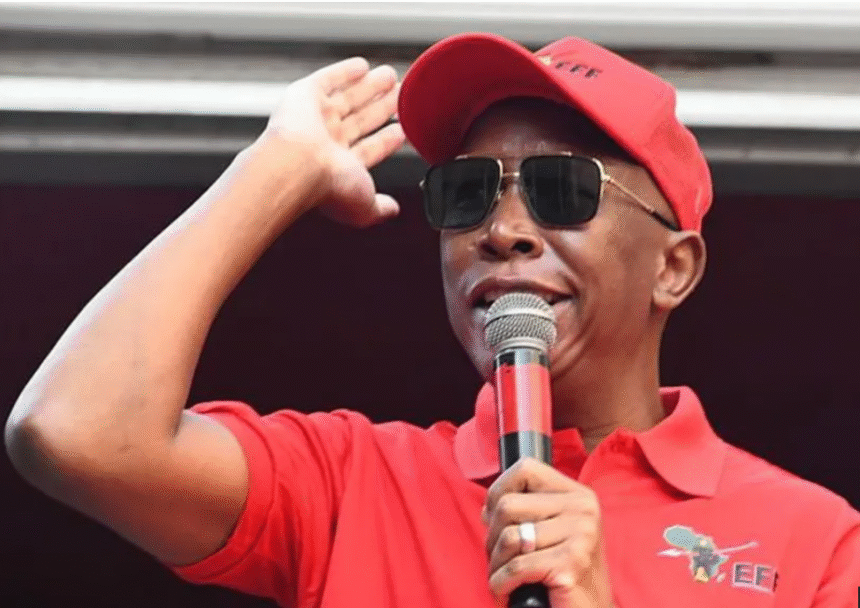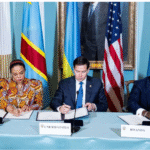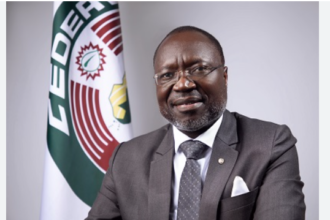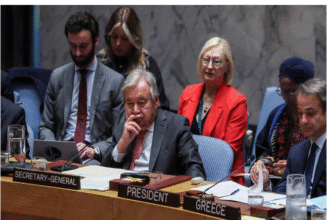By Esther Edoh
London, UK – South African politician Julius Malema, a prominent and often controversial figure known for his firebrand rhetoric on race relations and land redistribution, has been denied entry to the United Kingdom. The Home Office cited concerns that his presence would be “non-conducive to the public good” and “undesirable.”
In a letter released by Malema’s political party, the Economic Freedom Fighters (EFF), the Home Office outlined its reasoning, pointing to Malema’s vocal support for Hamas, including comments made after the October 7th attacks where he allegedly stated the EFF would arm the group if in power.
Further fueling the ban, the UK government accused Malema of making “statements calling for the slaughter of white people [in South Africa] or hinted that it could be an acceptable option in the future.”
The EFF, which secured fourth place in South Africa’s parliamentary election last year, vehemently condemned the ban, labeling it “cowardice” and arguing that it stifles democratic debate. The party maintains that the UK has distorted Malema’s views on the potential for social unrest arising from the economic exclusion of Africans by a white minority in South Africa.
“The UK and all of its allies can keep their visas, and we will keep our Africa and a commitment to support the oppressed of the world, especially the Palestinian people,” the EFF stated, underscoring their defiance and commitment to their core principles. The party insisted they would not “trade” their “revolutionary beliefs in exchange for a visa.”
The controversy surrounding Malema’s rhetoric is not new. A video featuring Malema singing “Shoot to kill” and “Kill the Boer” was prominently displayed by former U.S. President Donald Trump during a visit by South African President Cyril Ramaphosa to the White House last month. Trump used the footage to suggest Malema incites violence against the ethnic Afrikaner group.
However, South Africa’s Supreme Court of Appeal has ruled that the lyrics do not constitute hate speech, instead characterizing them as a “provocative way” of advancing the EFF’s political agenda focused on ending “land and economic injustice.” The court argued that a “reasonably well-informed person” would understand these songs are not meant to be taken literally as calls to violence.
Malema, a vocal critic of “Western imperialism,” advocates for the nationalization of white-owned land in South Africa to address the enduring legacy of colonialism and apartheid.
This marks the second time in two months that Malema has been denied entry to the UK. While the first refusal was attributed to a late application, British officials have confirmed this latest ban is a “substantive decision.”
According to the EFF’s released letter, the Home Office has stated that Malema has no right of appeal and is unlikely to be granted future visa applications.
“It is our longstanding policy not to comment on individual cases,” a Home Office spokesperson told the BBC.
While some critics in South Africa may view the UK’s decision as a welcome deterrent to inflammatory rhetoric, Malema’s supporters will likely argue he is being unfairly targeted for expressing uncomfortable truths about racial inequality and economic injustice in South Africa. Official statistics reveal a concerning unemployment rate of 33% in South Africa, with black citizens disproportionately affected. The EFF’s support base, largely comprised of young people, believe that radical action is necessary to address these persistent issues. The party’s recent electoral performance saw them fall from third to fourth place in last year’s elections, losing support to former President Jacob Zuma’s uMkhonto weSizwe (Spear of the Nation) party.









